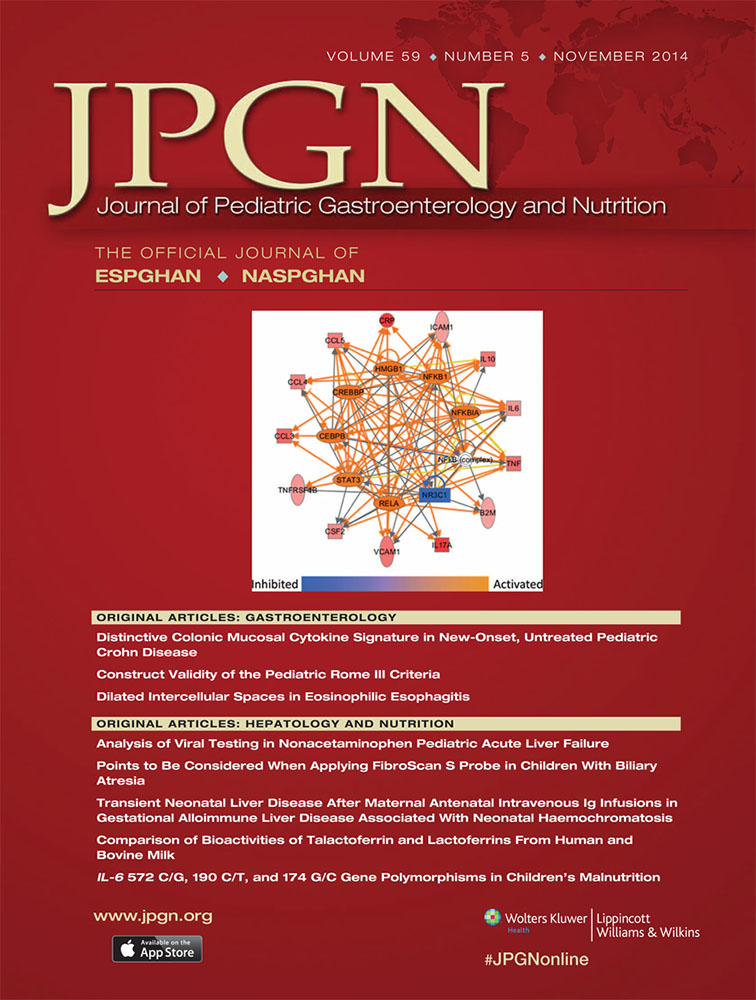Clinical Patterns and Outcome of Early-Onset Inflammatory Bowel Disease
This article has been developed as a Journal CME Activity by NASPGHAN. Visit: http://www.naspghan.org/wmspage.cfm?parm1=742 to view instructions, documentation, and the complete necessary steps to receive CME credit for reading this article.
Supplemental digital content is available for this article. Direct URL citations appear in the printed text, and links to the digital files are provided in the HTML text of this article on the journal's Web site (www.jpgn.org).
The authors report no conflicts of interest.
ABSTRACT
We sought to determine whether extremely-early-onset childhood inflammatory bowel disease (age <6 years; 20 ulcerative colitis [UC], 8 Crohn disease [CD], 2 indeterminate, sequentially diagnosed) was clinically more severe than in older children (6–17 years; 19 UC, 39 CD, 2 indeterminate). Early-onset UC was marked by less abdominal pain at presentation, but an aggressive course with a significant reduction in weight-for-age, increased use of immunosuppressants, and more surgery. Children with early-onset CD were more likely to have bloody stools at presentation and an isolated colitis. This study supports the suggestion that inflammatory bowel disease phenotype differs in early-onset disease.




